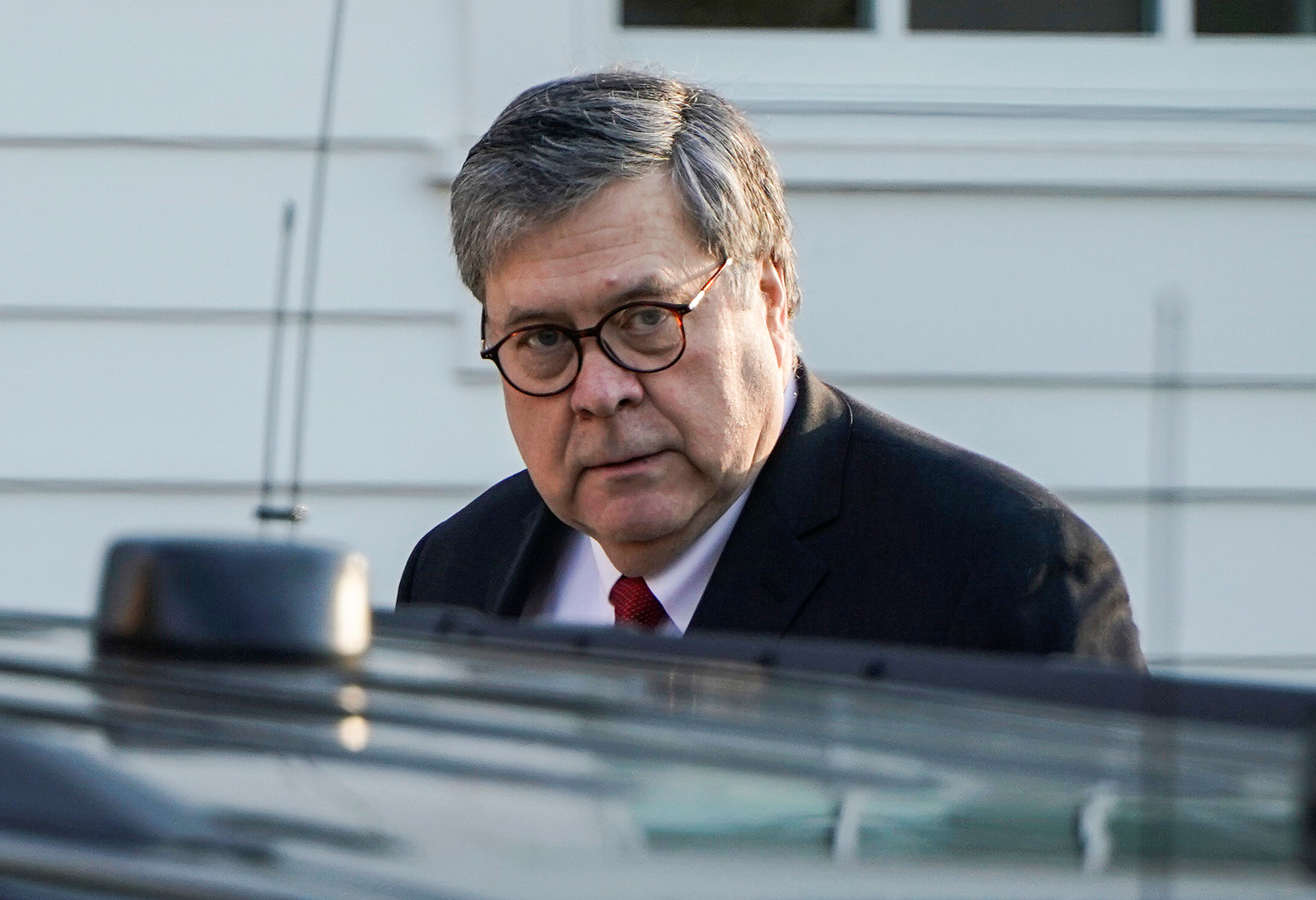U.S. Attorney General William Barr leaves his house after Special Counsel Robert Mueller found no evidence of collusion between U.S. President Donald Trump’s campaign and Russia in the 2016 election in McClean, Virginia.

By Susan Cornwell and Doina Chiacu
WASHINGTON (Reuters) – A leading Senate Republican said on Monday he would ask Attorney General William Barr to appoint a special counsel to probe whether U.S. law enforcement officials made missteps in their investigation into possible collusion between President Donald Trump’s campaign and Russia.
A day after the attorney general said the report by Special Counsel Robert Mueller found Trump’s campaign did not conspire with Russia, Senate Judiciary Committee Chairman Lindsey Graham said: “We will begin to unpack the other side of the story.”
He said it was time to look at the origins of a Foreign Intelligence Surveillance Act (FISA) warrant for former Trump adviser Carter Page, which was based in part on information in a dossier compiled by Christopher Steele, a former British intelligence officer who co-founded a private intelligence firm.
Graham told reporters he planned to ask Barr to appoint a special counsel to investigate the FISA matter, which is already being probed by the Justice Department’s internal watchdog, Inspector General Michael Horowitz.
A spokesman for Graham said later that Barr agreed to appear before the Judiciary Committee after he vets Mueller’s report.
A Justice Department spokeswoman declined to comment on Graham’s request.
Graham said he would use subpoena power if necessary, whether or not a special counsel is appointed. He added he also had lingering questions about the FBI’s probe into Hillary Clinton’s use of a private email server while she was U.S. secretary of state from 2009 to 2013.
Republican lawmakers have contended the FBI made serious missteps when it sought the warrant to monitor Page in October 2016 shortly after he left the Trump campaign.
Page, a foreign policy adviser during Trump’s campaign, drew scrutiny from the FBI, which said in legal filings in 2016 that it believed he had been “collaborating and conspiring” with the Kremlin. Page met with several Russian government officials during a trip to Moscow in July 2016. He was not charged.
Fusion GPS, a Washington-based political research firm, was initially contracted to investigate Trump on behalf of Republicans who wanted to stop Trump’s bid for the party’s nomination. Fusion later hired Steele to investigate Trump, and the firm was paid for Steele’s dossier work by a law firm connected to Clinton’s 2016 presidential campaign.
The top Democrat on the Judiciary Committee, Senator Dianne Feinstein, said Graham had the prerogative as chairman to bring whatever he wants before the committee.
But told of Graham’s interest in Clinton’s emails, Feinstein said to reporters: “Well, haven’t we had enough of it? Look how many years it’s been.” Former FBI Director James Comey said in August 2016 that no charges would be brought against Clinton over the matter.
(Reporting by Susan Cornwell and Doina Chiacu; Additional reporting by Sarah N. Lynch, Mark Hosenball, David Morgan and Jonathan Landay; Editing by Jeffrey Benkoe and Peter Cooney)


